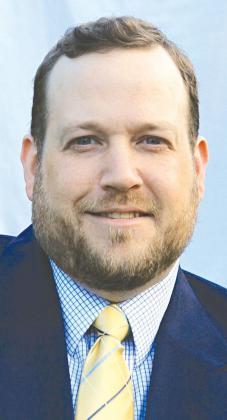
By Jeremy Alford/ LaPolitics.com
Some lawmakers are concerned that local governments and political subdivisions are abusing the “in cases of emergency” exception in the Louisiana Constitution for submitting tax propositions more than once within a six-month period.
Leading that war cry is House Natural Resources Chairman Stuart Bishop, R-Lafayette, who wants the Legislature do something about the issue.
The worst kind of abuser, said Bishop, are local government entities that fail to gain voter approval for a tax and immediately want another shot on the same exact proposition.
The problem, in the eyes of critics and according to constitutional law, is that failed tax propositions should only be returned to the ballot — within six months of being rejected — when there’s a local emergency.
“They’ll just bring it back and run it again,” Bishop said. “It’s getting too expensive to run these elections and taxpayers deserve better treatment.”
Bishop’s HB 41 is a constitutional amendment that would remove the “in cases of emergency” exception.
That means that even if lawmakers agree to back Bishop’s push, the proposal would still require ratification by Louisiana voters.
Secretary of State Tom Schedler is supporting the legislation and recently convinced a subcommittee of the state Bond Commission to deny three such local tax propositions.
“When does no mean no?” Schedler asked when contacted about Bishop’s bill.
Oil lobby backing bills
Like most special interests in this state, the Louisiana Oil and Gas Association will be playing defense during the session that convened this week.
But LOGA does have two bills on severance taxes it will be putting its weight behind.
HB 516 by Rep. Chris Broadwater, R-Hammond, creates an automatic trigger for well operators to apply for special severance tax rates. Currently those special rates can only be accessed after the Revenue Department makes a determination and documentation is filed.
While the bill does add one new tier for special rates, LOGA Vice President Gifford Briggs said his members are only interested in cutting the red tape and bureaucracy and not in changing the existing thresholds.
“We have companies that should have received these rates but they got bogged down in the paperwork and the bureaucratic process,” he said.
HB 461 by Rep. Stuart Bishop, R-Lafayette, is also being backed by LOGA. Briggs said it would “improve” the severance tax exemption for inactive wells. That means taking it from a 100 percent tax exemption for five years to a 50 percent tax exemption for 10 years.
The bill likewise adds a new exemption for production from an orphan well that provides a 75 percent rate reduction for 10 years, as long as it has been in the orphan well program for five years.
Place your (bigger) bets
The key offensive instrument for the video gaming industry in this year’s regular session involves dumping Jackson for Franklin.
HB 295 by Rep. Chad Brown, D-Plaquemine, would increase the cash denomination for video poker devices from $20 to $100. It also allows ticket vouchers of any amount to be used.
“It’s an economics thing,” said lobbyist Alton Ashy, who represents the industry. “Other forms of gaming are already allowed to do this. Why should we be at a disadvantage?”
The industry found a favorable audience in last year’s regular session for changes for truck stop facilities, but a somewhat similar bill involving cash denominations in 2016 was never brought to a committee. This go around, however, lawmakers could finally get to vote on the issue.
Louisiana’s German-born governor
On March 4, 1864, a Jewish-born (according to some source materials) immigrant from Germany was sworn in as Louisiana’s first Union governor.
George Michael Decker Hahn, known to friends as Michael, settled first with his family in New York City and then what is now Texas before moving to New Orleans and graduating from Tulane University with a law degree.
He was elected to the school board in Orleans at the age of 22 but truly earned notoriety some years later due to his anti-Confederate stances. When Union troops took over New Orleans, he became a congressman for the area and while in Washington became friends with President Abraham Lincoln.
That friendship certainly helped when a special election was called in Louisiana in 1864 and Hahn appeared on the ballot as a candidate for governor — and won. His agenda was aggressive and he immediately called for a constitutional convention and voting rights for African-Americans.
But Hahn’s big dreams never materialized. Some federal officials refused to recognize his civil government, so Hahn resigned exactly one year after taking his gubernatorial oath to instead serve in the U.S. Senate. He didn’t have much better luck in D.C., though, where southern senators were blocked from being sworn in following Lincoln’s assassination.
After his run at elected greatness Hahn’s life forever changed during the New Orleans Riot of 1866 when he received a gunshot wound that forced him to slow down a bit. But not a lot.
He went on to found the town of Hahnville; publish The St. Charles Herald-Guide newspaper, which is still in circulation today; and serve as the superintendent of the U.S. Mint in New Orleans and as a district judge.
He died in 1886 of a ruptured blood vessel.
They Said It
“The Easter Bunny isn’t going to bring us roads and bridges.”
—Gov. John Bel Edwards, on the need for a gas tax, in the USA TODAY Network of Louisiana Newspapers
“I have never seen Louisiana in the partisan situation that it faces right now. We have devolved into a mini-Washington unfortunately.”
—Commissioner of Administration Jay Dardenne, in The Associated Press
For more Louisiana political news, visit www.LaPolitics.com or follow Jeremy Alford on Twitter @LaPoliticsNow.
